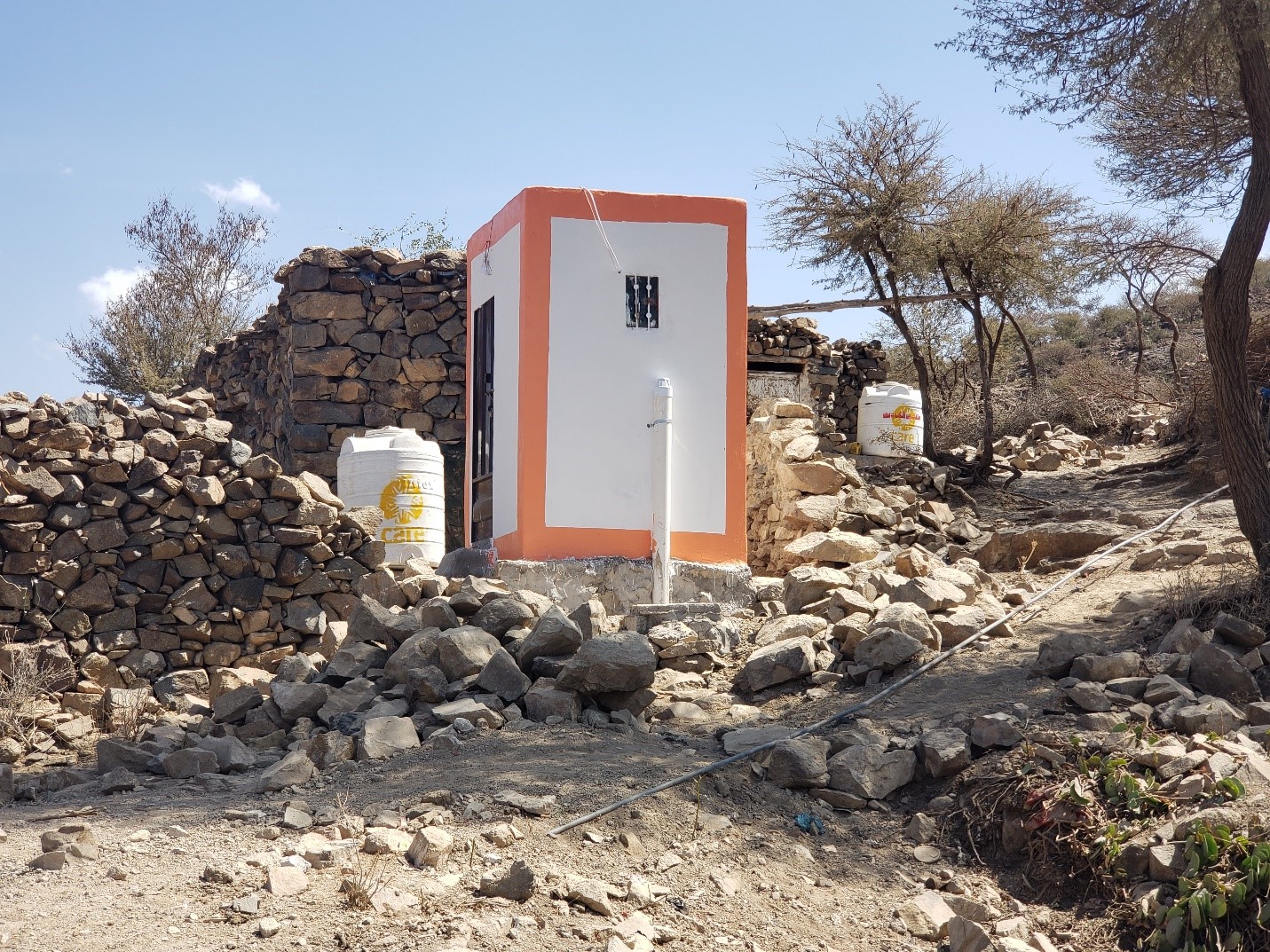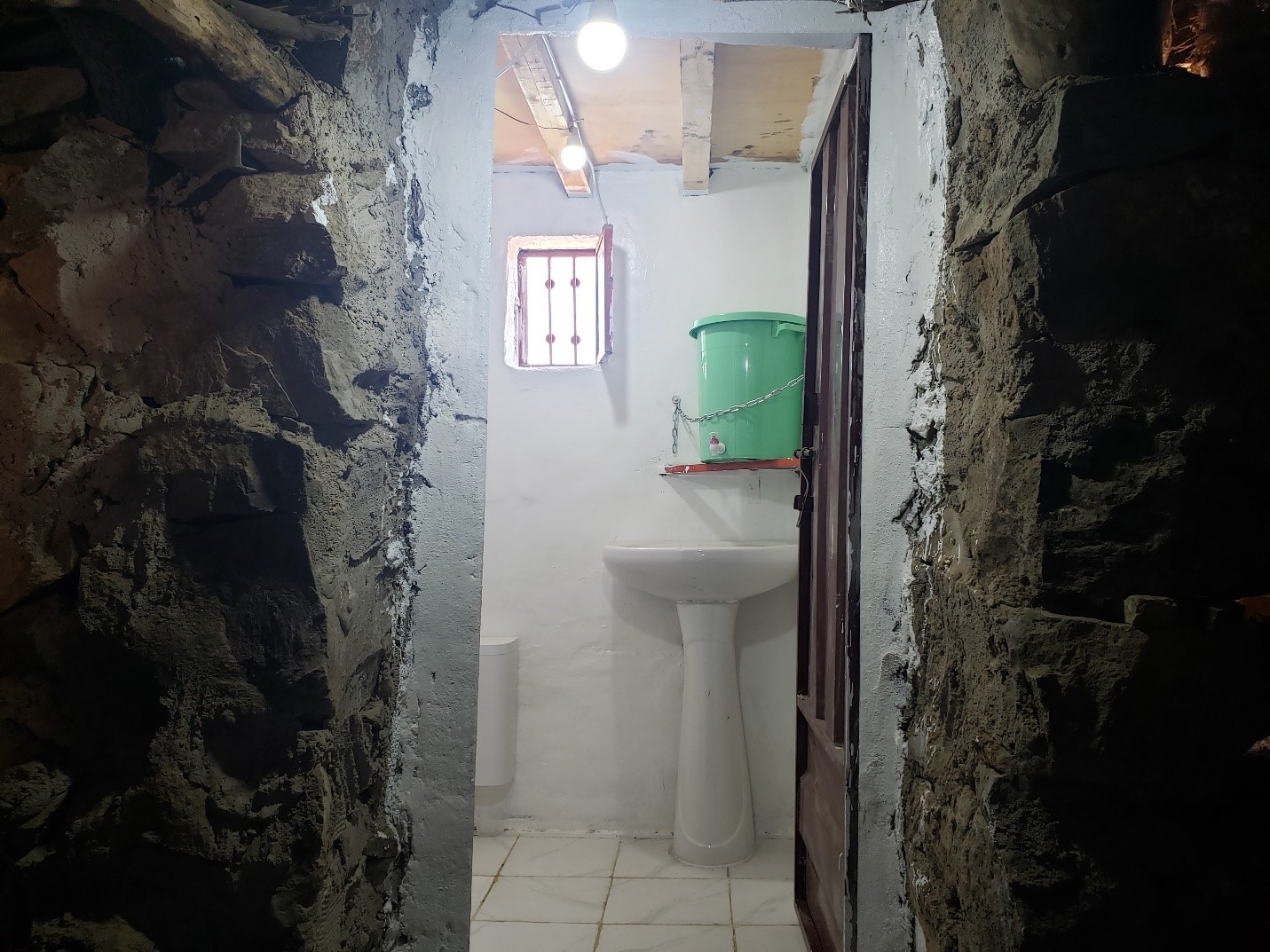After nearly seven years of conflict, according to the 2021 Yemen Humanitarian Needs Overview, a total of 20.7 million people in Yemen are in need of humanitarian assistance. A lack of access to safe water, sanitation, and hygiene are some of the most pressing concerns – a staggering 42 per cent of the Yemeni population struggle to benefit from adequate sanitation.
Gamilah, a 28-year-old is a mother of five children who fled from Taiz Governorate due to conflict. Now she lives with her family in an old, small room in Qusal village of Ibb Governorate. Like many, they don’t have a latrine, so they were forced to defecate in the open which made them vulnerable to many risks. “Females can’t defecate anytime of the day, particularly in the daytime, so they are forced to wait until night. One night a hyena appeared in front of me and my daughter while my daughter was outside to relieve herself,” Gamilah says.
Children and women represent around 80 per cent of internally displaced persons (IDPs), and just under a third of displaced households are headed by women or girls. Displaced women and girls tend to suffer most from a lack of privacy without substantial shelters or proper latrines, as well as threats to safety and limited access to basic services that could make them even more vulnerable to violence and abuse. “We can’t afford building a latrine due to the high price of materials. The men of our family work with daily wages which means they couldn’t provide all needs of ours,” Fatema explains. “We are forced to go into urinary retention which causes many diseases for us.” This act will gradually lead to serious physical issue such as kidney failure.
Open defecation perpetuates a vicious cycle of disease. The countries where open defection is most widespread have the highest number of deaths of children aged under 5 years as well as the highest levels of malnutrition and poverty. “Due to fear to go far to defecate, children relieve themselves adjacent to our room. This makes us vulnerable to many diseases. My five-year-old daughter got cholera but I couldn’t send her to hospital,” says Gamilah.
Only 45 per cent of Yemenis report having access to soap, whilst less than 50 per cent of populations in districts with a high incidence of WASH-related diseases like cholera, report washing their hands at critical times. “It is a luxury for us to buy soap or have latrines in our society. When we get money, we buy food to satisfy our hunger,” says Fatema.
Fortunately for Gamelah, Fatema and other residents in Hubaysh and Al Udayn districts, CARE, with funding from the Global Affairs of Canada (GAC), intervened in Ibb Governorate, with lifesaving and recovery assistance that aims to support those affected by conflict, both IDPs and their host communities. The GAC-funded project helped 92 families build latrines, rehabilitated the sewage system and distributed hygiene kits for 2,114 households.




